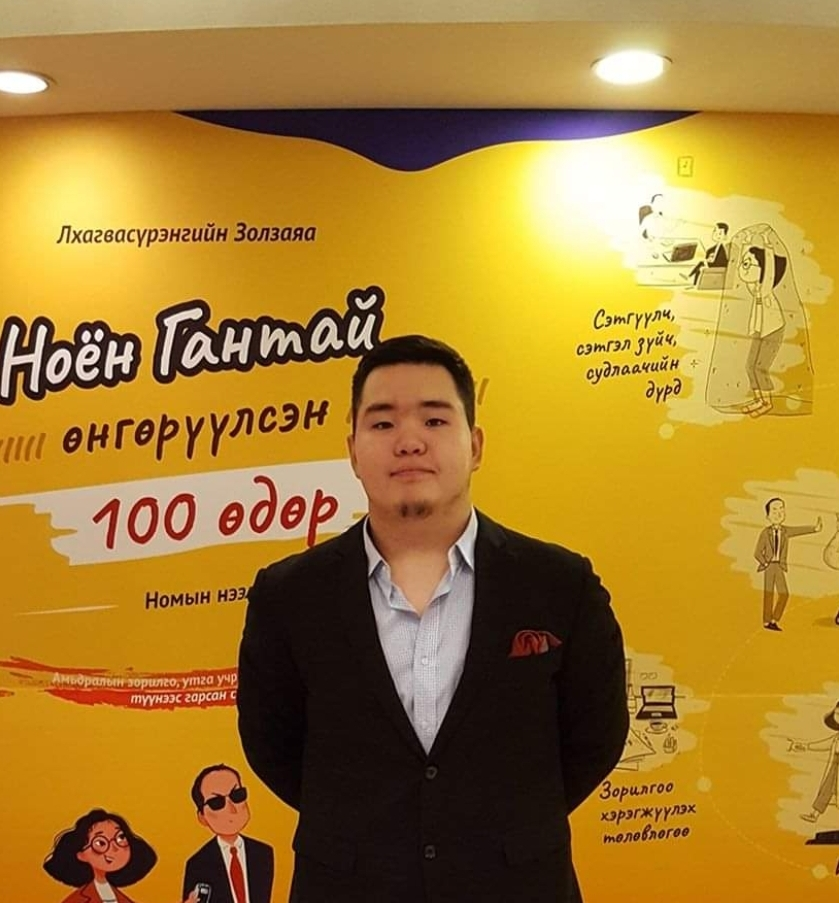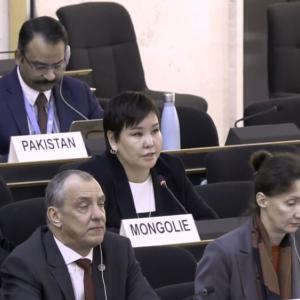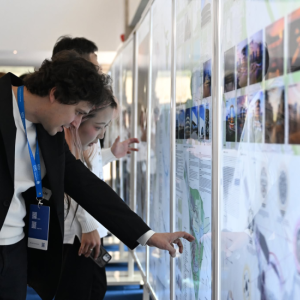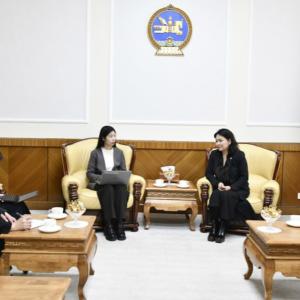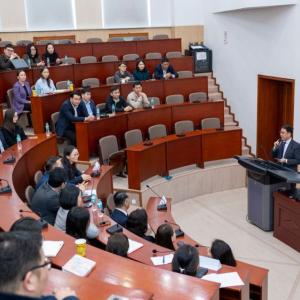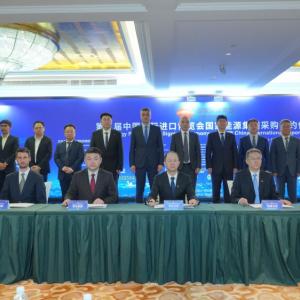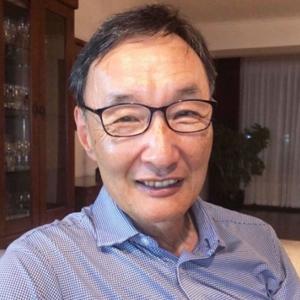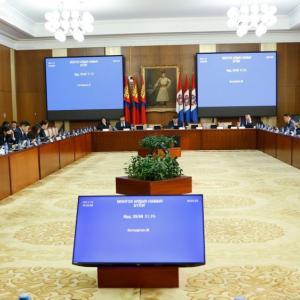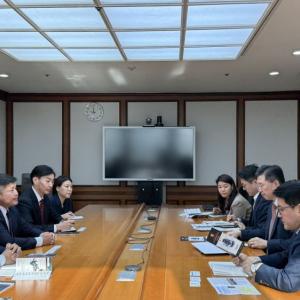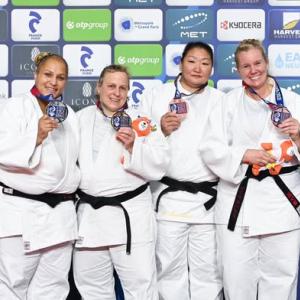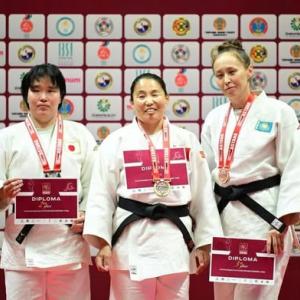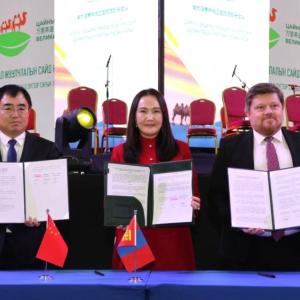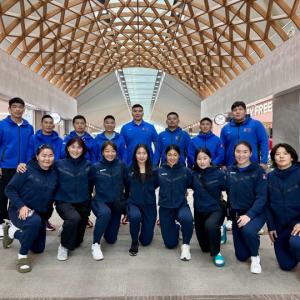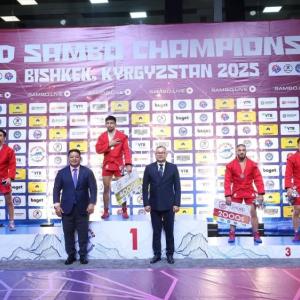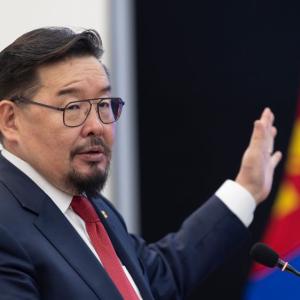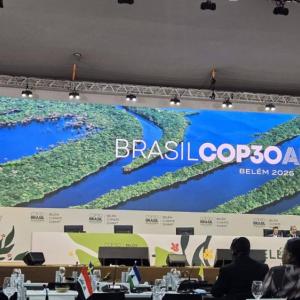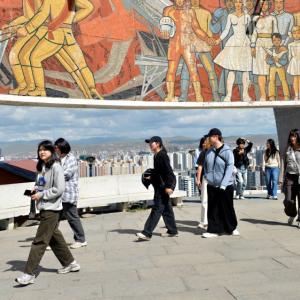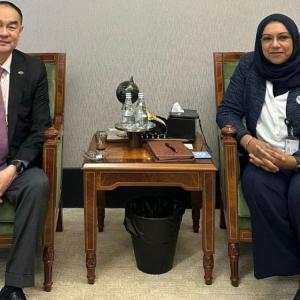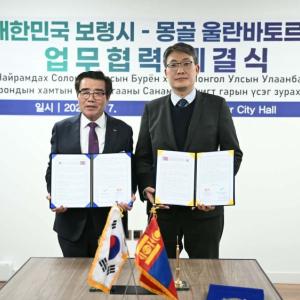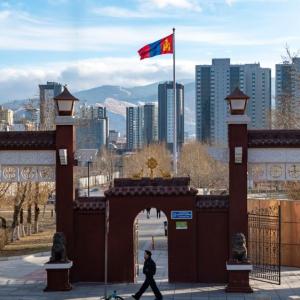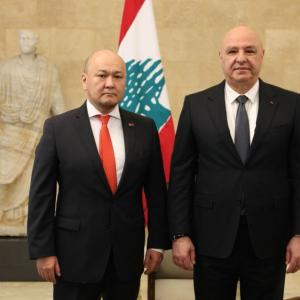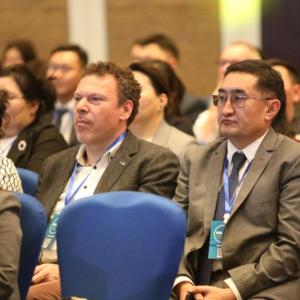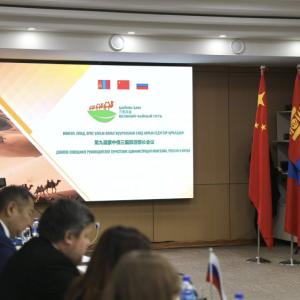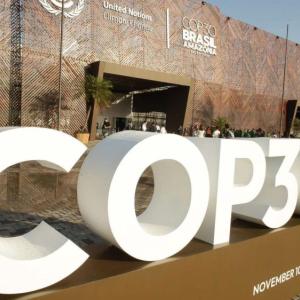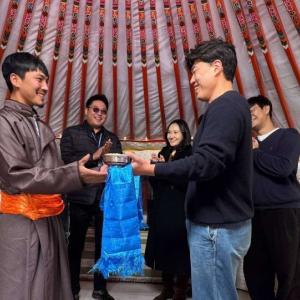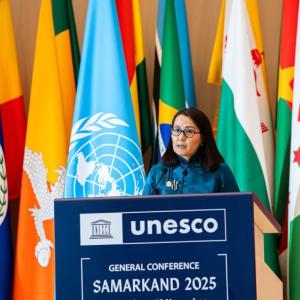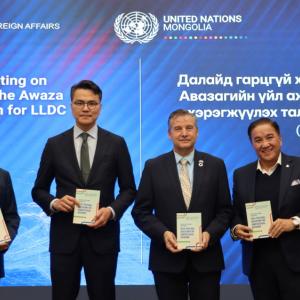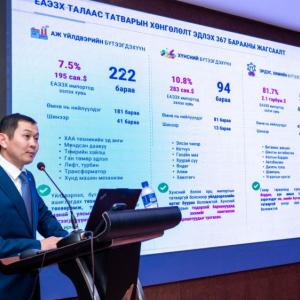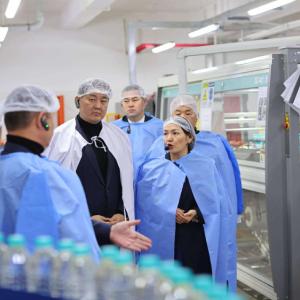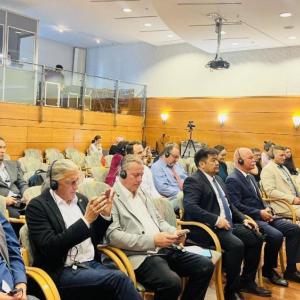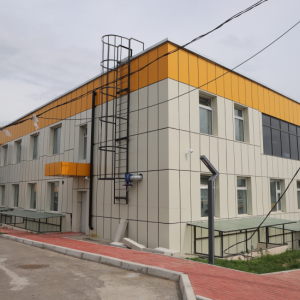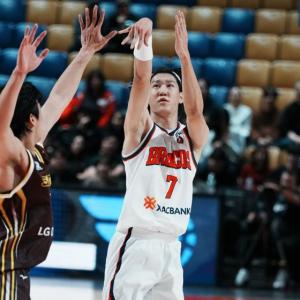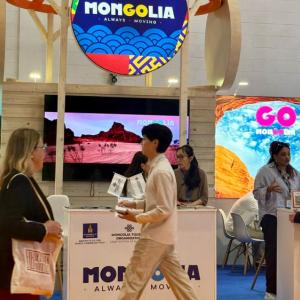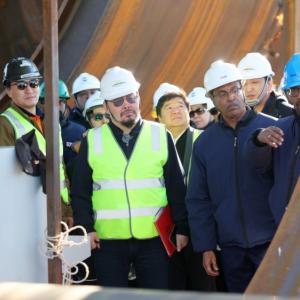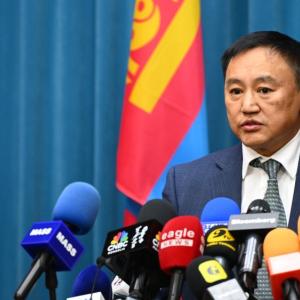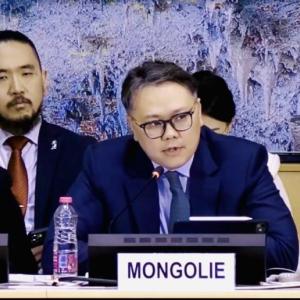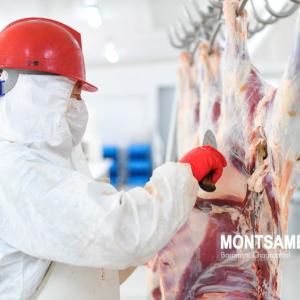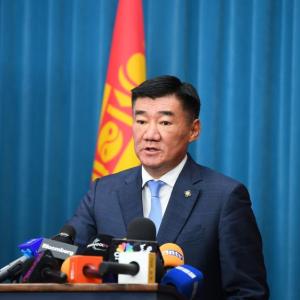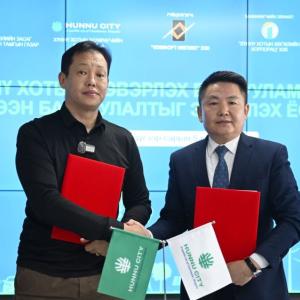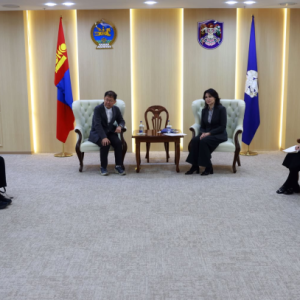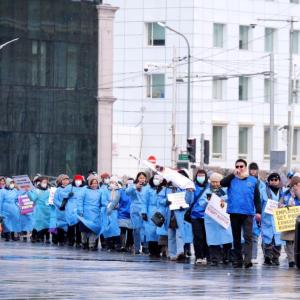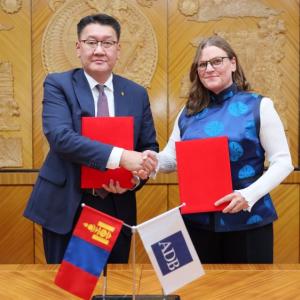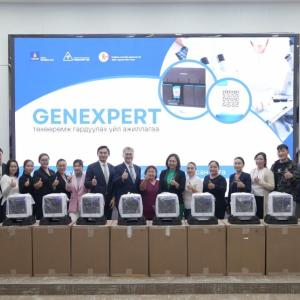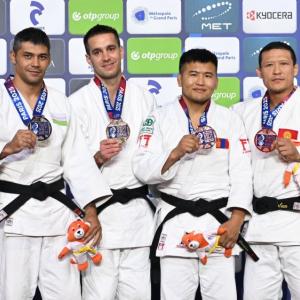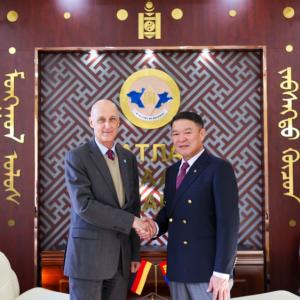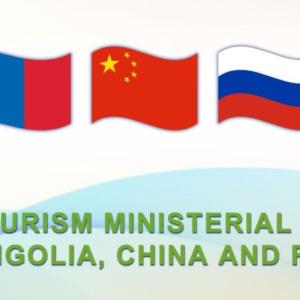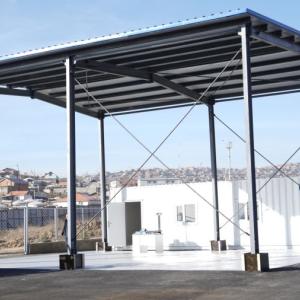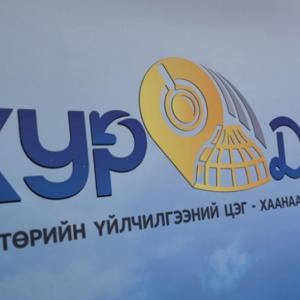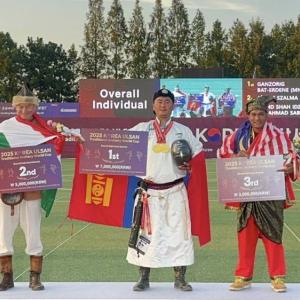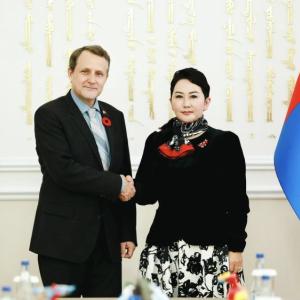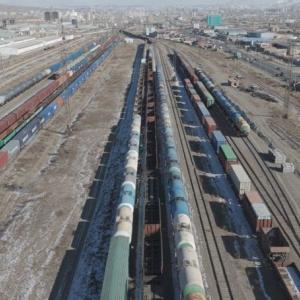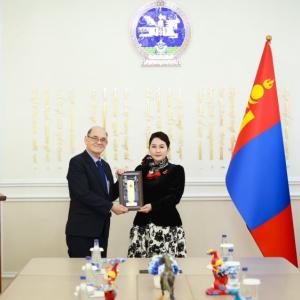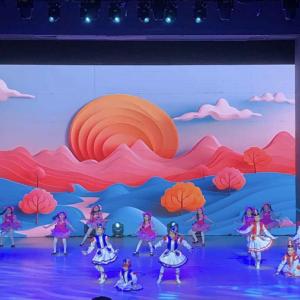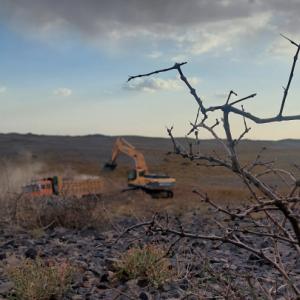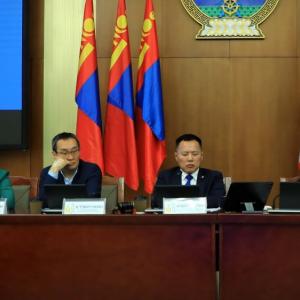Arya Bira: The 1930s Political Repressions Complicated Research on Mongolian Lifespan
Interview
Ulaanbaatar, November 11, 2025 /MONTSAME/. We present an interview with Doctor of Biological Sciences Arya Bira, Head of Division at the National Institute on Aging, United States National Institutes of Health. In recognition of his contributions to science, particularly in the field of biology, he was awarded the prestigious title of “Tenured” (Honorary Doctor) in 2011 upon the recommendation of the Scientific Council of the U.S. National Institutes of Health. Attaining the status of a tenured scientist signifies that his research has gained recognition and credibility on a global stage.
-It is truly an honor and a pleasure to speak with a
Mongolian scientist whose 12 works have been patented internationally. Of
course, we will talk about your research. But may we begin our conversation by
asking, when have you felt most proud of being Mongolian?
Thank you. It was truly my greatest honor to be recognized by the Mongolian Academy of Sciences, and thus by the people of my homeland.
-Thank you. You have spent more years living outside your
homeland, having studied and worked in the Russian Federation, the Republic of
Hungary, and later in the United States for more than 30 years, where you
received the distinguished title of Tenured.
Yes, time flies. I still can’t believe I’ve lived and worked in the USA for almost 35 years. I’ve been quite fortunate that my love for science-and, importantly, hard work-paid off, eventually earning me a tenured position that allowed me to continue my research with fewer distractions.
-
As we all know, global life expectancy is increasing almost everywhere, including in Mongolia. I believe it was 72 years in Mongolia in 2023. Although this is certainly a reason to celebrate, one puzzling question remains: why is it still markedly lower than that of our neighbors-84 in Japan, 83 in South Korea, and 78 in China? Is it due to our genes, the food we eat, the air we breathe, or our lifestyle? These are very important questions, not only in terms of basic and medical science but also for the health of the nation and even politics. As such, most industrialized countries dedicate significant resources and have established aging centers and institutes. A primary focus of aging research is to understand the biology of aging to develop strategies that support healthy aging and reduce the burden of so-called age-related disorders and diseases.
-What is the most common misconception people have about
cancer and aging?
I’m not sure I fully know what people do or don’t understand about aging and cancer. However, aging is one of the major risk factors for most cancers, and cancer can therefore be considered an age-related disease. Although the immune system plays a key role in controlling cancer, its response to cancer changes with age.
-The longest-living person in the world is said to have
been a French woman who lived to 122 years old. Today, the world’s oldest
living person is a 116-year-old woman from England. From a scientific
perspective, do Mongolians exhibit any unique genetic traits? In general, are
there any distinctive genetic or lifestyle factors that influence the longevity
of Mongolian people?
It is not easy to determine whether Mongolians possess unique genetic traits related to longevity. We are all familiar with examples of centenarians who have lived for over a hundred years, but as far as I know, there is no scientific research specifically studying any unique genetic characteristics of Mongolians in this regard. The lack of reliable historical data, along with the significant loss of population during the political repressions of the 1930s, makes this question even more complex. However, research conducted in other countries on centenarians shows that, in addition to genetics, lifestyle and environmental factors also play an important role in longevity.
Dr. Arya earned his degree in genetics from Lomonosov Moscow State University and received her Doctor of Biological Sciences degree in the Russian Federation in 1991. Arya Bira later worked as a researcher at the University of Illinois in the United States and has been conducting research there for 35 years. Over the course of his career, he has published more than 60 scientific papers in leading international journals and holds 12 patents.
-By what means is it possible to prevent the factors that
affect aging and lead to cancer risk? Do soil and air pollution play a large
role?
Yes, air, soil, and water pollution are key detrimental
factors affecting human health. Although pollution impacts people of all ages,
I believe elderly individuals are particularly vulnerable due to their frailty
and increased susceptibility to disease. While we can each try to reduce our
individual exposure to pollution, the government must play a central role in
regulating and mitigating this problem.
-The World Health Organization once noted that Mongolia
became the first country in Asia to eradicate the deadly disease known as
smallpox. We Mongolians are a people who understand well the importance of
vaccines. However, are there any risks associated with vaccination?
The value of vaccines is immeasurable, both for individuals
and for society as a whole. The safety of vaccines is of utmost importance. Before
a vaccine is approved for human use, it undergoes extremely rigorous safety
testing and extensive monitoring. Every vaccine consists of several components,
including antigens that trigger immune responses, adjuvants that help enhance
those responses, and carriers or stabilizing substances. Depending on the
composition and method of administration, some individuals may experience
immune reactions.
Among Dr. B. Arya’s many studies, one noteworthy discovery is that he and his research team identified a process in the human body that reduces the capacity of immune cells and supports the development of cancer cells, a finding that has made a significant contribution to the field of oncology.
-In your research career, has there been a person or event that had a strong influence on you?
I’ve had many people who supported my scientific career. Of course, my parents played the most important role as both role models and teachers. They actively guided me toward science. When I was around 13 or 14 years old, my mother introduced me to the great works of Avicenna (also known as Ibn Sina), the renowned ancient philosopher and medical doctor. I still remember her interpretations of some of the ideas from his Canon of Medicine. Around the same time, my father gave me his beloved book from his student days-Microbe Hunters by Paul de Kruif.
-You were recently named an Honorary Member of the
Mongolian Academy of Sciences. In your opinion, if Mongolia were to make
policy-level investments in science, which field should be prioritized?
I believe investment in biomedical sciences should come
first, particularly in research and development related to Mongolian
biotechnology and traditional medicine, as these areas are vital for promoting
healthy aging and extending lifespan.
 Ulaanbaatar
Ulaanbaatar





